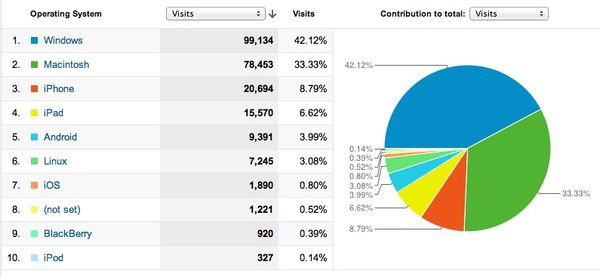Browser Loyalty (or not)
I guess this weekend will be google analytics weekend, given my post yesterday and today. In light of the rumors that Facebook may purchase the Opera browser, I got to thinking about how quickly browser market shares move. If the AVC blog audience is a good sample, then the answer is pretty quickly.
Here's the breakout of browser market share on AVC in the month of May 2006:
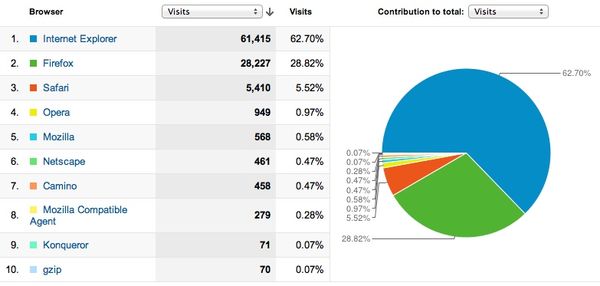
IE was dominant with over 60% of the AVC audience using it in May 2006. Firefox was coming on strong and Safari was tiny with about 5% of the users.
In just two years, the landscape had shifted rapidly.
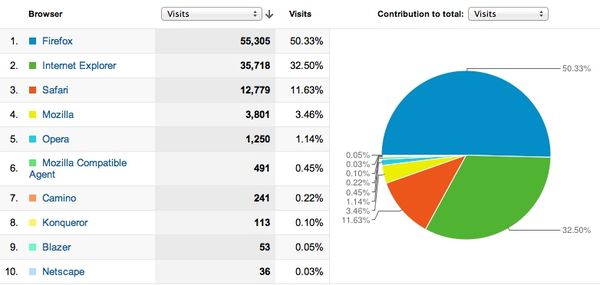
In May 2008, Firefox was ascendant and over half of AVC readers used it. IE was still popular and Safari had doubled its share among AVC readers.
Two years later, in May 2010, the market was shifting again.
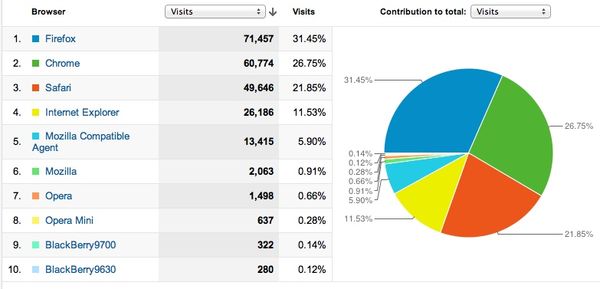
Firefox was still on top but was falling and Chrome was taking share from it. Safari had doubled again, and IE usage was in freefall.
And fast forward to today, we see a different story again.
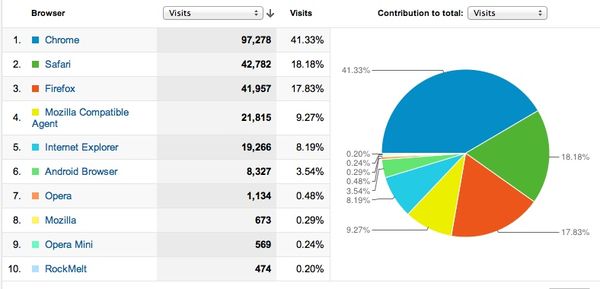
Chrome is by far the most popular browser among AVC readers. Safari and Firefox usage has declined a bit. And IE contnues its decline.
All of this share shifting has happened in the relatively short timeframe of six years. There is apparently very low loyalty to browsers in the AVC community. I suspect our crew here is more likely to try something new and shift than the broader Internet, but even so, this is something to think about if owning a browser is part of your lockin strategy. Apparently that doesn't work too well.
UPDATE:
There was a question about OS market share. This is what the current OS market share on AVC looks like:

